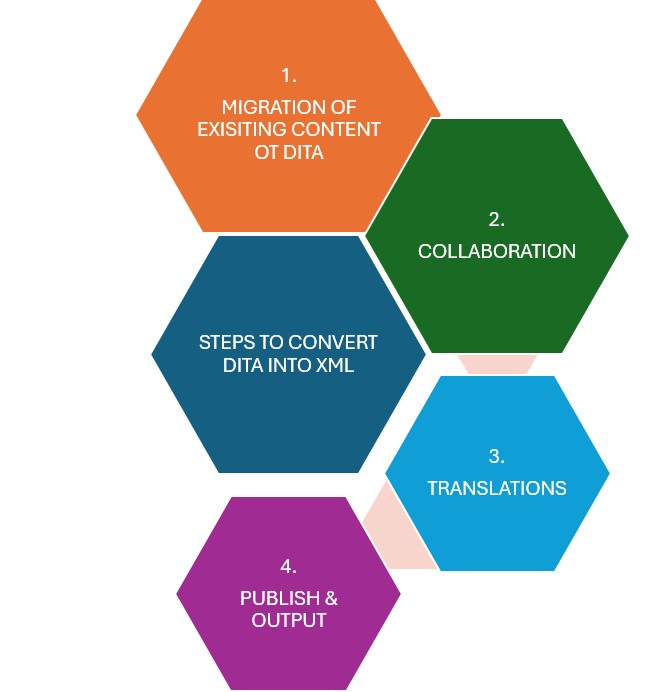Important steps to convert content into DITA XML which are as follows:
Performing a DITA Migration The following information is of most relevance to us within steps to be considered.
For each given piece of pre-existing information (manuals and/or guides), look through it and break it down into reusable chunks or topics.
- Detect any repetitive or overlapping content and reuse it wherever applicable.
- Convert the content to DITA XML with DITA Migration Tools or oXygen XML Editor.
- Create a DITA Map to put the topics in order and link them in a hierarchical manner,
- Tools- a required set. That includes: oXygen XML, XMetaL, or Adobe FrameMaker.
- Troubleshooting assistance- need help with conversion? I can literally guide you step by step in that process.
1. If migrating from existing content to DITA
Steps:
- Detect any repetitive or overlapping content and reuse it.
- Audit existing content such as manuals and guides and break that down into reusable chunks or topics.
2. If You’re Intent on Collaboration
Approach:
- Set up a DITA CMS (Content Management System) to manage and version your topics.
- Popular CMS tools: SDL Tridion Docs, Adobe Experience Manager, or Componize.
- Train your team to use modular content creation practices and content reuse.
Recommended Workflows:
- Use review and approval workflows in the CMS.
- Allow authors to work concurrently using shared DITA maps.
3. If You’re Prioritizing Localization (Translations)
- DITA simplifies translation by letting you isolate reusable components, reducing costs and turnaround time.
- Use translation management tools like SDL Trados Studio or MemoQ integrated with your CMS.
4. Publishing and Output
Single-source Publishing (making multiple outputs from the same content):
- Use DITA Open Toolkit (DITA-OT) to generate HTML, PDF, ePub, and others.
- Customize output formats using style sheets (CSS/XSLT).
